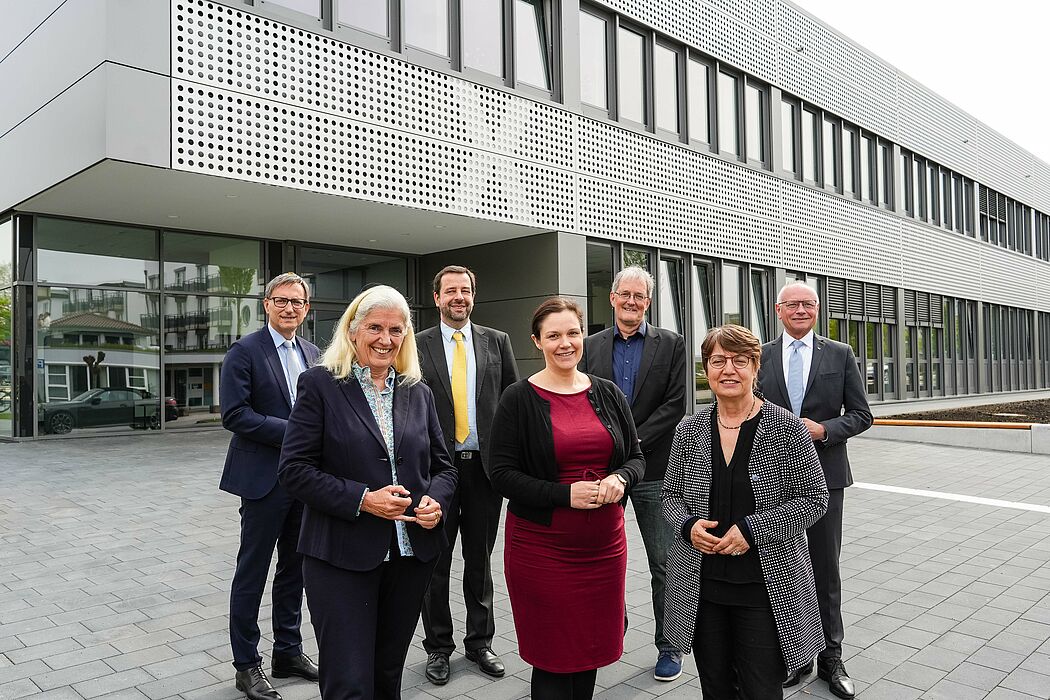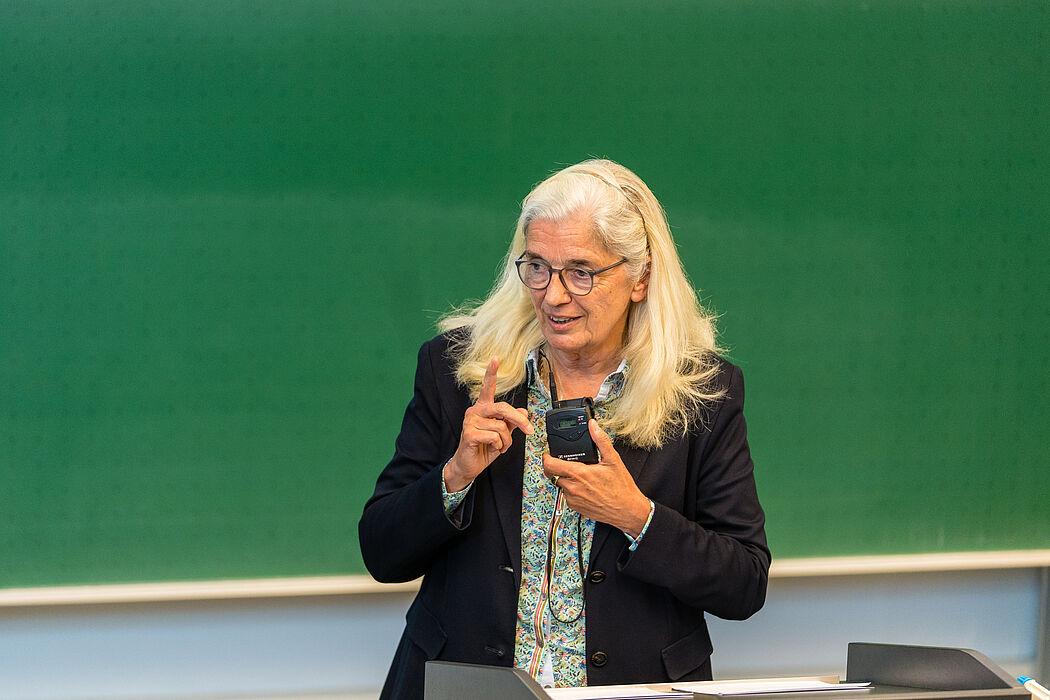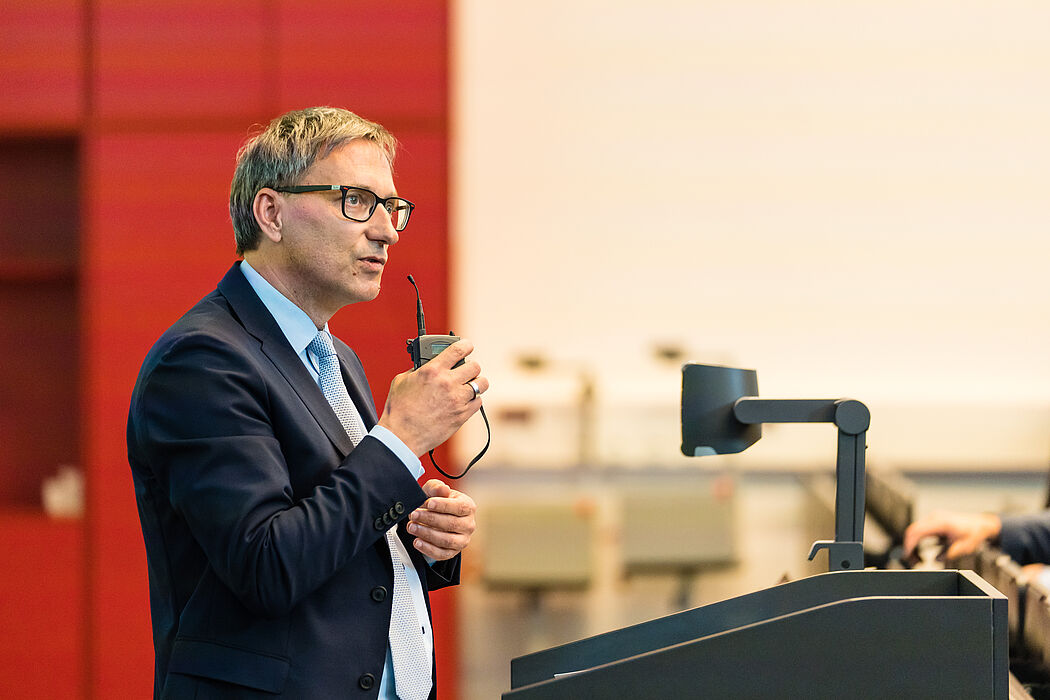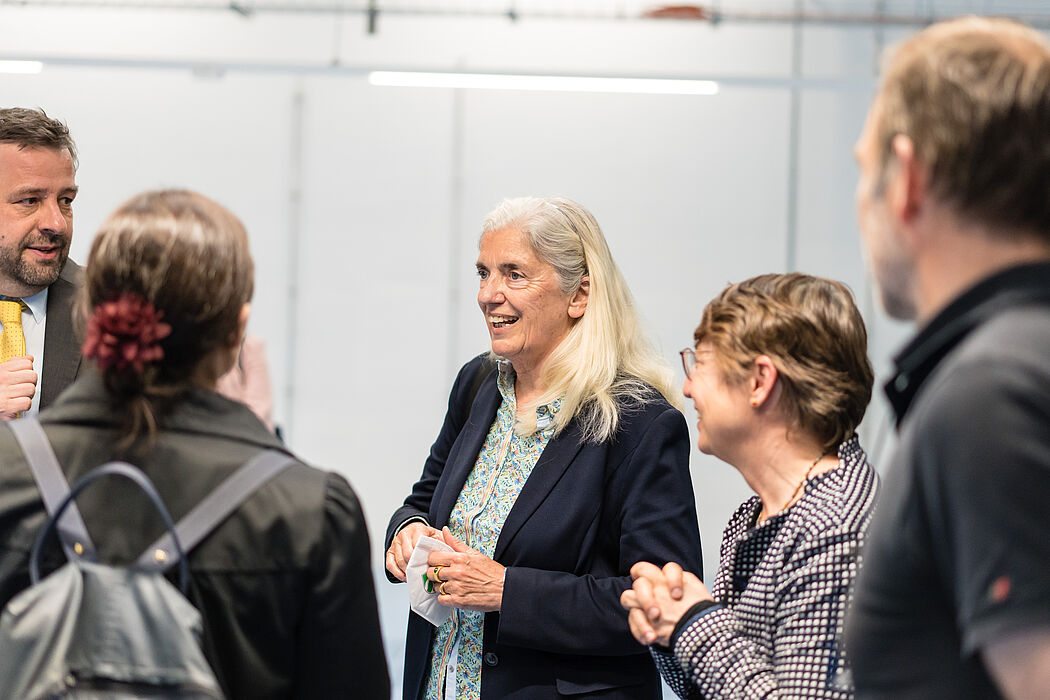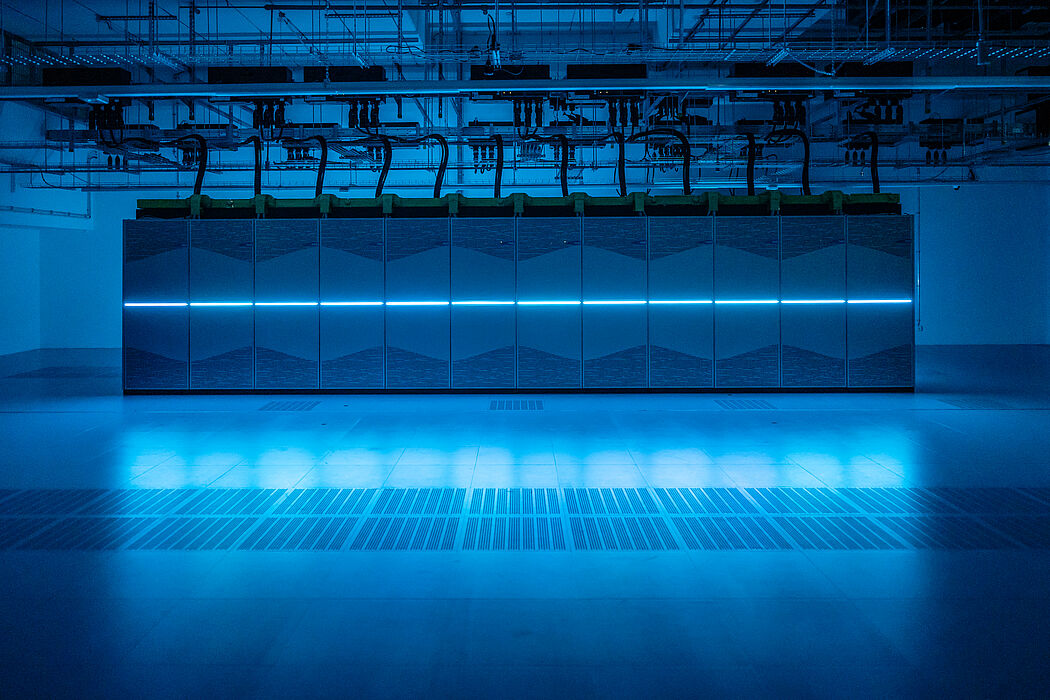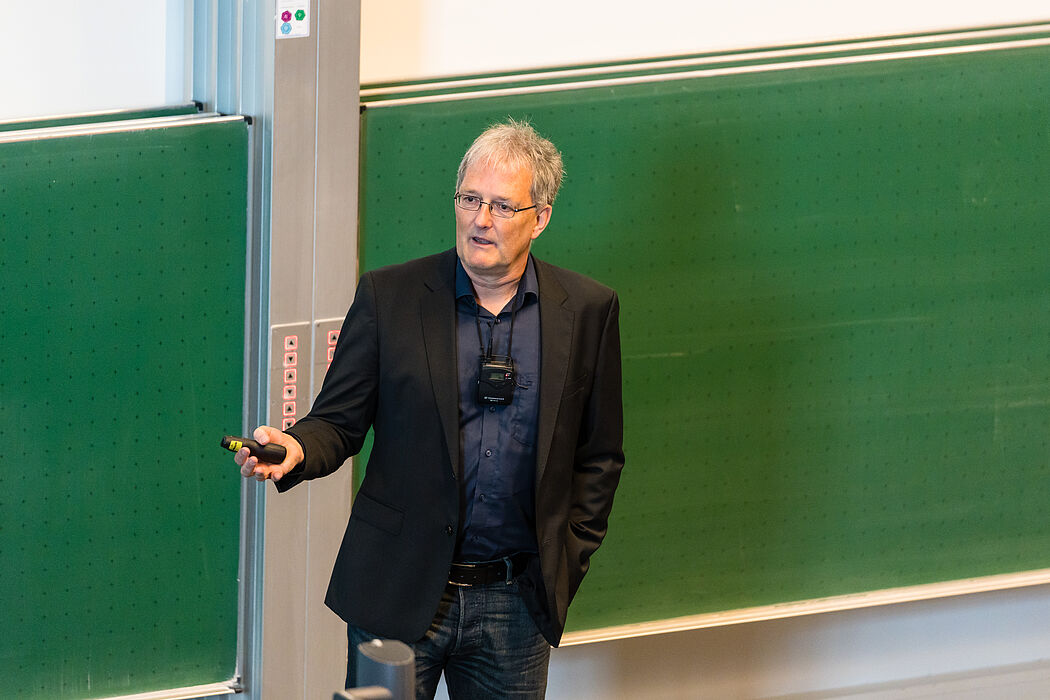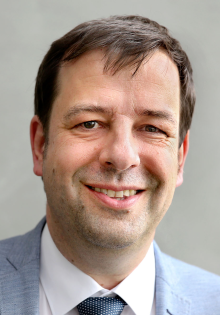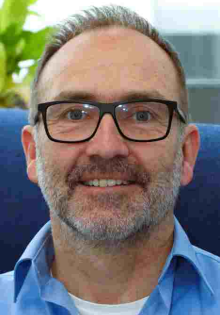Paderborn, 29 April 2022
140,000 processor cores, high-tech of the very latest generation and yet as compact as a squash court: On Friday, April 29, Paderborn University officially inaugurated its new high-performance computing center, which houses the "Noctua 2" supercomputer. The centerpiece of the research building is the approximately 340-square-meter computer hall, which is home to the HPC (High Performance Computing) system and its eventual expansion stages. The building also houses office areas with workplaces and an IT workshop for the staff of PC2 (Paderborn Center for Parallel Computing), which operates the supercomputer, as well as meeting, laboratory, and training rooms. The federal government and the state of North Rhine-Westphalia jointly funded the research building and the Noctua 2 high-performance computer with grants totaling 25.4 million euros. Paderborn University has additionally invested in the connection to the campus networks.
"A supporting role for the future of high-performance computing"
Isabel Pfeiffer-Poensgen, Minister for Culture and Science of the State of North Rhine-Westphalia (MKW NRW), emphasized the importance of the Paderborn site for high-performance computing: "As a supra-regional research infrastructure, Noctua 2 will play a supporting role for the future of high-performance computing in Germany, even beyond North Rhine-Westphalia. Paderborn University is already an important location of the National High Performance Computing Center, which will be further strengthened with the new research building as well as the expansion of the infrastructure."
"With the new research building, we have already created the best conditions for tomorrow's cutting-edge research," said a delighted Prof. Dr. Birgitt Riegraf, President of Paderborn University. “Users from computational sciences can now use the appropriate infrastructure to continue to compete internationally at the highest scientific level. This shows that the University of Paderborn is optimally positioned for the future in this area," Riegraf continued.
Access to the most modern computing capacities
Experts at PC2 have been researching the efficient use of supercomputers for a long time. The central scientific unit of Paderborn University operates high-performance computing systems to serve scientists in the entire Ostwestfalen-Lippe region and nationwide. With Noctua 2, the center offers top researchers access to state-of-the-art computing capacities: "With more than 140,000 processor cores of the latest AMD Milan CPU generation and particularly powerful Nvidia A100 graphics card accelerators, we are increasing our already installed computing power tenfold. This takes us into a completely new order of magnitude, enabling even the most sophisticated computer simulations in the natural sciences, materials science, and engineering. In computer systems research, we are also setting a unique European focus in research and infrastructure by further expanding the computer partition with particularly energy-efficient, programmable FPGA-based hardware accelerators," explained Prof. Dr. Christian Plessl, Chairman of the Board of PC2.
Supercomputer for 14 million euros
"Noctua 2" is the name of the second expansion stage of the "Noctua" high-performance computer installed in 2018 and was built by Atos, a leading provider in the field of HPC systems. The computer, with a total funding of more than 14 million euros, is the first supercomputer to move into the new HPC data center of PC2. The building contractor and owner of the research building is Bau- und Liegenschaftsbetrieb NRW (BLB NRW). Dinah Heidemann, Commercial Branch Manager Bielefeld of BLB NRW, notes, "When we started this construction at the end of 2019, nobody could have guessed that just a few months later–in the middle of the hot construction phase–we would have to deal with a worldwide pandemic, with lockdowns, with quarantine regulations and much more on the construction site. Hence, I am very happy that together with our partners we managed to hand over this remarkable building to the university on time and on budget with very good results." Udo Littke, CEO Atos Germany, added: "High-performance computing is a huge magnifying glass that enables completely new insights into the world of data, where the classical computing power of computers reaches its limits: Quantum computing as a way of processing data will have a massive impact on the landscape of artificial intelligence and data analytics."
In his keynote speech, which was the crowning finale of the event, Prof. Dr. Christof Schütte from HU Berlin and President of Zuse Institute Berlin addressed the importance of high-performance computing as an engine for innovation.
Further information:
- German version of this article
- Video showing the HPC data center infrastructure and installation of Noctua 2
- Noctua 2 specifications

